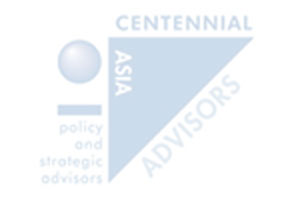Asian Insights
A summary of “Asian Insights” weekly update is published here. The full version is available through paid subscription. Please click here to register your interest. Our executive will get in touch with you.

Key highlights from the CAA Weekly Table:
- Geopolitical risks: US efforts to deepen strategic ties with Taiwan and potential risks to Xi’s political position raise the risk of Taiwan being a flashpoint in their relations.
- Global economy: Since the economic dislocation in China is unlikely to end quickly, the drag on the global economy will continue to worsen. The US economy remains in good shape but the composition of its growth will not help Asian exports much. The Trump Administration is threatening the WTO with more pressure, posing further risks to Asian exporting nations.
- Asian economies: Stimulus measures will be aggressively ramped up in China, but at the expense of stoking financial imbalances. In India, the RBI is resorting to administrative measures to fire up the sagging economy as soaring inflation limits the use of rate cuts. Expectations that the MAS will ease monetary policy are likely to be disappointed: the virus crisis has merely delayed Singapore’s recovery, not ended it. In Thailand, the BOT will have to cut rates again but we are unconvinced that more rate cuts can make up for the lack of fiscal support. The Bangko Sentral ng Pilipinas cut rates after taking into account of the expected hit posed by the coronavirus outbreak and still-manageable price pressures. The Malaysian economy will cool marginally in 4Q19 amid lacklustre exports and factory output.
- Asian political risks: Exit polls in the Delhi state assembly point to another setback for Prime Minister Modi’s BJP amid opposition worries about electoral fraud. In Malaysia, the ruling coalition is under strain following speculation that Prime Minister Mahathir is preparing to ditch his current coalition partners and form a government with the former ruling party.
Indonesia: Can reforms be the flagging economy’s saving grace?
- 4Q19 GDP growth slipped below 5% for the first time in 3 years; consumer demand did most of the heavy lifting amid a worrying slowdown in private investment.
- A bevy of high-frequency indicators suggest that domestic demand will remain resilient moving forward. However, the desultory foreign investment figures underline the urgent need for structural reforms which President Jokowi has repeatedly promised since 2019.
- There are more concerns that the reform agenda may be stalling: Bowing to vested interests, Jokowi may concede generous protections for local firms in order to secure the revamp of the negative investment list and the omnibus job creation bill that he is keen on.
Singapore: Near-term growth concerns take centre-stage in Budget 2020
- A generous and expansionary Budget 2020 is likely given the darkening prospects for the economy: there will be a suite of measures to cushion sectors affected by the virus crisis.
- However, the government’s main focus will continue to be on accelerating the structural transformation of the economy: measures will aim at strengthening enterprise capabilities, improving the skills of the labour force and helping local firms to internationalise.
- Budget 2020 will also feature measures to tackle the cost of living, housing affordability, and retirement adequacy – issues that are top-of-mind for the majority of Singaporeans.
- The budget statement is also likely to provide more clarity on the timing of the increase in the goods & services tax as well as other tax adjustments.
The CAA Weekly is currently available only for our subscribers. Please email contact@centennialasia.com for subscription enquiries.

Highlights from the CAA Weekly Table
What has changed?
- Global economy: A sharp downturn in China this quarter is certain: external demand for Asian exports will depend heavily on the still-robust US economy. But the US economy is slowing and the composition of its growth does not favour a strong boost to Asian exports. This should prompt the region’s policymakers to step up policy support.
- Asian economies: The Jokowi administration has been rocked by successive scandals at a delicate time when potentially game-changing reforms are being readied for parliamentary approval. The Singapore economy could lose momentum in 1Q20 as the key finance & insurance sector pulls back. The Thai economy saw broad but unconvincing improvement in December: growth drivers are limited and the prospect of timely fiscal support has shrunk. The tax-to-GDP ratio continues to inch up in the Philippines, on the back of several tax hikes and robust economic momentum, bucking the regional trend.
Impact of 2019-nCov on Asian growth could be shallow and short-lived
- Despite the growing alarm, the impact to Asian growth of the 2019-nCov outbreak should be rather modest: the fatality rate is stabilising at a lower level than initially feared while security measures taken by governments should limit the damage to China.
- Also significant are automatic stabilisers that will kick in to provide a reprieve, for instance the expected weakening of Asian currencies which move in lockstep with the Yuan.
- There are, however, several risks to watch for: 1) the virus could mutate further; 2) lower growth could set off existing financial vulnerabilities in the Chinese financial system, 3) a weakened China may not be able to fulfil its promises to buy US goods, with ramifications for trade tensions; 4) the outbreak could speed up production relocation out of China.
India: A litany of tax cuts in an otherwise bland budget devoid of ideas
- As Budget 2020-21’s fiscal stance is just marginally positive, it is not sufficiently supportive of the economy as growth is poised to slip to a multi-year low for fiscal year 2019-20.
- A litany of tax sops outlined by the government for all segments of society was the only real highlight of the budget, following on from an earlier move to cut corporate taxes to provide a fillip to the sagging economy.
- The macro-economic assumptions are clearly too optimistic, and the government risks jeopardising its credibility as far as the revenue mobilisation efforts are concerned, when the authorities struggle to meet its tax target for yet another successive year.
- The government paid lip service to structural reforms with no references to the overhaul of labour laws, or reforms to improve the investment climate and attract more foreign investments.
- On the bright side, the quality of spending is poised to improve but the risk of a narrowing tax base threatens to constrain the government’s ability to stabilise the economy with counter-cyclical fiscal policy as institutionalised handouts pile on the spending pressures.
- More fundamentally, the budget reminds us of the structural weaknesses in the Indian economy. Disappointingly, the government has not offered a robust policy response.
